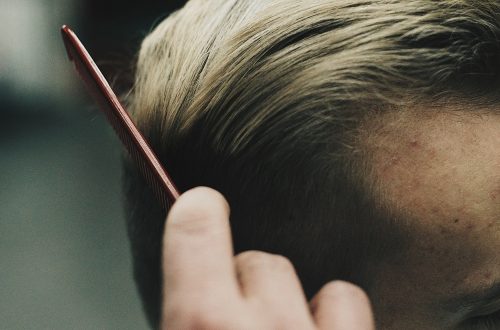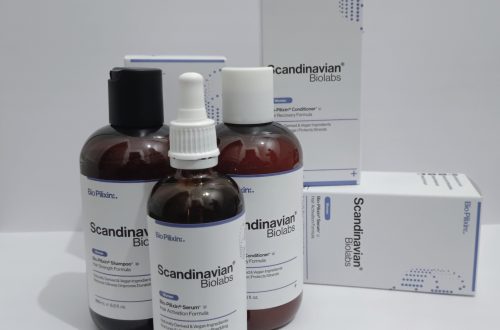
Understanding Male Menopause: What is the “Manopause”?
Everyone knows menopause affects women, sometimes catastrophically, but what about men? Dr. Aamer Khan, MB ChB, integrative health and longevity expert, founder of The Cellular + Regenerative Clinic in Harley Street and author of Turn Back Time and Regenerative Treatments In Aesthetic Medicine, refers to it as “manopause”—the male counterpart to menopause. Though less widely recognised, the Male Ageing Syndrome (manopause) involves a gradual disturbance of hormonal balance, very often beginning in early to mid 30s, and affects many aspects of a man’s physical and mental health. This is the time that men feel their manhood or masculinity starting to fade.
“Typically the change is first noticed at around 40 years of age. The ‘manopause’, it seems, takes hold at an earlier age for men than menopause does for women,” explains Dr. Khan.
“As men get older, they may develop a metabolic disturbance, leading to insulin resistance and a depletion of insulin production. This can result in the accumulation of belly and visceral fat, which increases the risk of chronic inflammation, cardiovascular problems, and other issues.”
The Symptoms of ‘Manopause’
The Male Ageing Syndrome presents a spectrum of symptoms due to the gradual decline of testosterone levels, including:
- Fatigue and Low Energy: Persistent tiredness, even with adequate rest.
- Insomnia: Sleep disturbances, leading to poor sleep quality.
- Mood Changes: Depression, irritability, and anxiety due to hormonal fluctuations.
- Weight Gain and Muscle Loss: Increased body fat, particularly around the abdomen, and decreased muscle mass.
- Erectile Dysfunction and Reduced Libido: Difficulties achieving or maintaining erections and a lower sex drive.
- Cognitive Decline: Brain fog and difficulty concentrating.
The Importance of Early Diagnosis & Intervention
“Manopause is not just a phase men must endure; it is a treatable condition,” says Dr. Khan. Early diagnosis and timely intervention are crucial in managing symptoms effectively. By incorporating lifestyle modifications alongside medical treatment, patients are equipped with the tools they need to regain their vitality and maintain a healthier quality of life.
Dr. Khan attributes the early onset of “manopause” to lifestyle factors such as poor diet, lack of exercise, and sedentary behaviour; all of which contribute to ‘accelerated biological ageing’. He suggests that making healthier choices and staying physically active can help mitigate the effects of ageing.
“We’re noticing changes in men earlier than in women,” he says. “They used to happen later than in women, but diet is the main cause due to the impact of processed foods on the male metabolic state. The ‘manopause’ is not solely due to testosterone and oestrogen changes. It’s related to our metabolism, and we’re seeing metabolic syndrome X earlier and earlier in men.
“Syndrome X, also known as metabolic syndrome, insulin resistance or pre-diabetes, is a cluster of conditions that occur together, increasing the risk of heart disease, stroke, fatty liver syndrome, and type 2 diabetes. It typically includes high blood pressure, insulin resistance, excess body fat around the waist, and abnormal cholesterol and/or triglyceride levels, all of which can lead to chronic health issues if left untreated.”
In contrast, some populations seem to avoid these symptoms altogether. “There are genetic populations, for example in Japan, where they didn’t recognise the menopause for a long time, because their lifestyle and genetics mean they often don’t suffer the same menopausal symptoms as we do,” he adds.
Hormonal Decline
Men lose approximately 1% of their testosterone per year after the age of 40, which means that by midlife, a significant number of men begin experiencing symptoms linked to low testosterone levels. Research shows that around 2% of men aged 40–79 suffer from symptomatic testosterone deficiency in the UK alone. This decline is compounded by lifestyle factors like obesity and lack of exercise, which can accelerate the depletion of available testosterone (nhs.uk Nature). This has resulted in symptoms now being experienced by men in their 30’s.
Dr. Khan explains that belly fat and insulin resistance, two common outcomes of poor lifestyle choices, further exacerbate this decline. “At the age of 30, one in four men will experience some degree of symptoms associated with testosterone deficiency, and declining erectile function can be an early warning sign,” he notes. “Poor diet, processed foods, and sedentary behaviour are the key culprits, leading to a metabolic disturbance that impacts testosterone levels and increases the risk of cardiovascular disease.”
One of the primary treatments offered is hormone testosterone therapy, aimed at correcting low testosterone levels, if this is found to be the case. Testosterone deficiency is one of the key factors contributing to many of the symptoms experienced during gradual andropause. By supplementing testosterone through medical treatment, patients can experience improvements in energy, mood, muscle mass, sexual function, and overall well-being.
Dr. Khan explains that this treatment, tailored to the individual’s specific needs, can help reverse the negative effects of testosterone decline while maintaining safety and efficacy. It is just as, if not more important, to change the other modifiable factors through better dietary and nutritional choices, and more exercise to address the accelerated biological ageing. It is for this reason that Dr. Khan prefers the term ‘Male Ageing Syndrome’, as a more accurate description of the changes.
The Mental Toll: Toxic Masculinity & Health
“Changes in mood affect men too.” adds Dr. Khan.
Men experience mood fluctuations and depression in their 20s and 30s because of a combination of work, home, and family demands. This, combined with a preconception of what a man ‘should’ be can create a state of mental distress. Other male characteristics such as not being able to talk about their feelings, tendencies for excess to compensate, with smoking, drinking alcohol, exercise, and resorting to recreational drugs, can compound the problem.
“We see hormonal changes that cause brain fog and their concentration is affected, which worsens any preexisting mental situation. We cannot separate mental and physical health. Physical health deterioration impacts mental health, and metabolic issues will affect how men feel emotionally,” he continues.
Men often struggle with the psychological impacts of manopause. “Men have difficulty with mental health because of this toxic masculinity where men are expected to perform and to be quiet and to get on with it,” says Dr. Khan. “Talking about how they’re feeling isn’t something that men do naturally, but more men are now being encouraged to opening up and speaking.”
He adds: “We’ve got to start thinking about the whole human being—not separating mental and physical health. Changes in our diet, environment, and lifestyle mean the gut biome plays a huge part in how we feel mentally. Gut health’ and the Gut-Brain Axis is well established scientifically, and is something we should be including in our assessments, and addressing, as people age.”
The Importance of Early Diagnosis & Intervention
“Manopause is not just a phase men must endure; it is a treatable condition,” says Dr. Khan. Early diagnosis and timely intervention are crucial in managing symptoms effectively. “At the age of 30, one in four men will experience some degree of symptoms associated with the Manopause, and erectile dysfunction can be an early warning sign.”
He emphasises how poor lifestyle choices exacerbate the decline: “Poor diet, processed foods, and sedentary behaviour are key culprits. A metabolic disturbance impacts testosterone levels and increases the risk of cardiovascular disease.”
Managing Manopause with Personalised Care
At The Cellular + Regenerative Clinic in Harley Street Dr. Khan offers a personalised approach, including a full physical and psychological assessment, genetic testing, gut biome testing, blood physiology, including hormone testing; and holistic and hormone treatments where necessary. “We run clinics and retreats and do basic testing one month prior to arrival because it’s important to know who you are and what your blueprint is. Doing DNA, whole genome and epigenome tests give us so much information to start making changes.”
Dr. Khan adds, “Your DNA and genetic blueprint only accounts for 20% of the outcome. 80% is down to our Epigenetics, – what we do, our environment and lifestyle. The good news is, we can change things and help reduce those risks now. These are known as modifiable risk factors.”
Combatting the Effects of Manopause
In addition to testosterone therapy, where necessary, the clinic offers:
- Comprehensive Health Assessments: Blood and urine tests to evaluate physiological, hormonal and metabolic function.
- Visceral Fat Analysis: Measuring internal fat around organs, a key metabolic and cardiovascular risk factor.
- Lifestyle Modifications: Diet, physical activity, stress management, and sleep strategies to manage andropause.
- Mental Health Support: Addressing brain fog and mood swings alongside lifestyle and nutritional support; and any medical treatments.
“If we look at the hallmarks of ageing, most of the decline is due to chronic inflammation. Consuming anti-inflammatory foods like good proteins and fats, and a variety of colourful vegetables is essential because they provide the micronutrients that are essential for balanced hormones.”
Reclaim Your Health
If you’re experiencing symptoms of male menopause or midlife health challenges, Dr. Khan and the Men’s Midlife experts at the Cellular + Regenerative Clinic in Harley Street provide personalised care, including testosterone testing, metabolic health assessments, and tailored lifestyle interventions.
Until next time.




